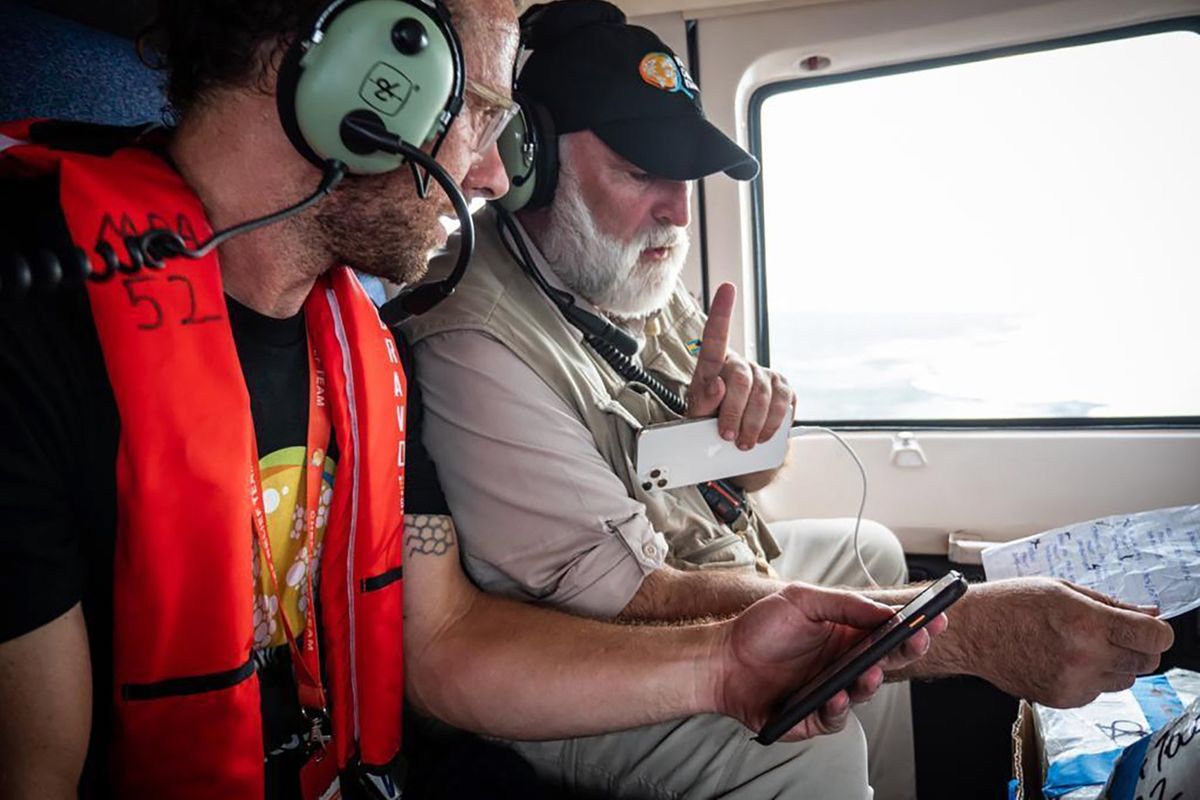Review: ‘We Feed People’ spotlights relief efforts of chef José Andrés

“We Feed People,” Ron Howard’s engrossing documentary about chef José Andrés and his relief organization, World Central Kitchen, begins with a disaster. It’s not the kind you’d expect. As Andrés rides in the back of a large all-terrain vehicle, loaded with hot food to distribute to North Carolina residents following 2018’s Hurricane Florence, the truck suddenly slides off a road that the driver assumed was there somewhere under all the floodwaters.
Perhaps Howard couldn’t resist the drama of the moment: a disabled truck, taking on water, in an isolated part of the state where all you can see are trees, gray skies, power lines, raging floodwaters and a few lights on the horizon that hint at civilization. But I suspect Howard wanted to show how Andrés deals with setback. The chef adopts this almost preternaturally calm demeanor, as if he were trying to do nothing more than save a dish, not potentially save lives.
This illuminating moment of failure captures at least two traits about Andrés, which Howard will probe deeper in his doc: the chef turned humanitarian’s ability to adapt quickly to conditions on the ground and his unflappable pursuit of feeding people in crisis no matter the obstacles. In the era of climate change, Howard seems to be saying, Mother Nature may be an unpredictable force, but we have our own flesh-and-blood counterpart: this voluminous, combustible, unstoppable Spaniard named Andrés.
Howard is smart enough to know this narrative is too neat, and he gently tries to uncover the impulses that drive Andrés, sometimes to the detriment of the chef’s health, his family and those around him. The director gets Andrés to talk about his childhood and his “complicated” relationship with his mother, a nurse, whose “moments of intensity” compelled him to find “ways to be away from home.” But just as soon as Howard and Andrés touch upon these sensitive topics, they drop them, ready to investigate other storms of life.
World Central Kitchen has been around a dozen years, born in 2010 during the deadly earthquake in Haiti, but the organization came into its own after Hurricane Maria slammed into Puerto Rico. Relying on original cinematography and archival footage from WCK’s team and collaborators, Howard takes viewers from one devastated area to another, whether the Bahamas after Hurricane Dorian or New York City during the pandemic, introducing us to some of the staff and volunteers who make the organization the new model for disaster relief.
Some of this is well-worn territory for those who have been following Andrés’ career, though perhaps in a more digestible form than, say, his detail-rich book, “We Fed an Island.” Howard takes detours, for instance, to give credit to the chef’s mentor, Robert Egger of D.C. Central Kitchen, or to give screen time to favorite Andrés topics, such as migrant farmworkers, but without getting overtly political.
The director’s best decision was to wander into the Andrés household and talk to his wife, Patricia Fernandez de la Cruz, and their three daughters, who candidly share their thoughts. “I worry a lot when he goes” to a disaster zone, says Lucia, the youngest. The daughters frequently don’t hear from Dad for days, which is why they joined Twitter, “just to keep track of him,” says middle daughter Inés. The daughters agree that their mother is the glue that keeps the family together. “We say that José does what he does because I do what I do,” Patricia tells the camera.
The documentary – which follows Howard’s “Rebuilding Paradise,” another doc that deals with natural disaster – might have leaned toward hagiography if not for the director’s willingness to show Andrés’s harder edges. Like the moment when the chef dresses down a WCK worker for breaking protocol in the Bahamas and giving a woman sustenance before relief stations were set up. He later tries to apologize to the woman who witnessed the confrontation, but she won’t have it, which makes Andrés only try harder. It’s painful to watch.
I can’t fault Howard, though, for not digging deeper into the messier parts of Andrés’s life, even if it would have made for a more compelling film to see what this man has accomplished despite the hurts he may harbor in that big heart of his. But I think Howard could read the room. This divided country desperately needs someone to play the hero, and José Andrés is the right man for the job.